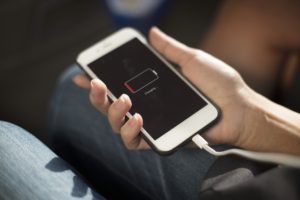
“You’re doing what?” The question came from my girlfriends during our morning run. I had explained my plan to attend a weekend meditation retreat. It wasn’t the meditation retreat they reacted to. It was the plan: Friday night concert (we already had tickets); Saturday morning drive five hours to the retreat (it started at 9am); meditate all day; Sunday fly across country for a business meeting. All this so I could relax.
“No. You will not do that.” One of the girls insisted. The remarkable thing is that it took their perspective to convince me that, once again, I was over-doing it. The idea was good – to slow down – but I didn’t see the big picture. Their reaction caused me to pause and remember what I already knew about energy balance but had shoved aside.
Clearly, knowing and doing are not the same things. Here is my refresher course:
1. Know your energy profile. We all have it–the time of day when we’re at our best. For many people, it’s in the morning. But not for everyone. I’m a morning person and I do my best work in the morning…in the quiet. My friend writes and creates at night long after I’m snoozing. And don’t even call her before 11am. When are you at your peak performance? What time of day does your energy peak…morning, afternoon, evening?
2. Recognize your energy drains and fillers. Each day starts with some amount of energy in your tank. Throughout the day you constantly fill up or drain away that energy. Energy fillers make you overflow with vim, vigor and vitality. Energy drains are activities, people or situations that sap your strength. Perhaps you procrastinate and mutter, “This just takes all my energy.” And you’re right! What activities fill or drain your energy?
As you read the following list, take note of subtle shifts in how you feel:
• Reading a book
• Listening to music
• Going dancing
• Hosting a party
• Attending a large networking event
• Going for a run
• Practicing yoga
• Meeting friends at a lively bar for drinks
• Meeting your best friend at a quiet restaurant
• Participating in a large conference
• Speaking before a group
• Facilitating a small group discussion
• Brainstorming new ideas with co-workers
• Participating in a heated debate
I noticed my breath slows with the energy fillers and my brain emits a tiny “yikes!” with the energy drains. What about you? Can you tell the difference?
3. Coordinate your energy and your day. Big-ticket activities are best planned when your energy level is topped off. Write the report, hold budget negotiations, and do strategic planning when your energy is high. Research shows that decisions that need high moral considerations are strongest in the morning. And you certainly don’t want to have that high-emotion talk with your problem employee when your energy level is low (the same is true for having The Talk with your partner). Bad idea. Very bad idea. Plan routine administrative, minimal thinking tasks when your energy will be lower.
4. Balance the Big Picture. Even when you are adept at balancing daily energy, there is the week, month and year to consider. This is where I failed. I've been told that I put ten pounds in a five-pound bag. Scan your monthly calendar. Is there time for the fun energy fillers? Or does work follow you home inside your computer or inside your head? Advances in neuroscience allow scientists to see that your brain keeps working on a problem when you are at the park, in a museum, listening to music, or baking cookies for the school fund-raiser. In fact, this down time is some of the most creative for your brain. Take a few pounds out of the bag to make time for the energy fillers across the week, month and year.
It’s easy to complain about having too much to do. It’s harder to commit to change. We wear our busy-ness as a badge of honor as though it is an indicator of value. It’s not. Perhaps something won’t be accomplished exactly when I want or perhaps I must make hard choices about the number of clients I can support. Whatever it is, I commit to managing my time with more balance.
Now it’s your turn. Be aware of your energy profile and your energy drains and fillers; balance each day, week, month and year. Make the commitment to always keep energy in your tank. Good luck! Now, if you’ll excuse me, I have to take five pounds out of my bag.





